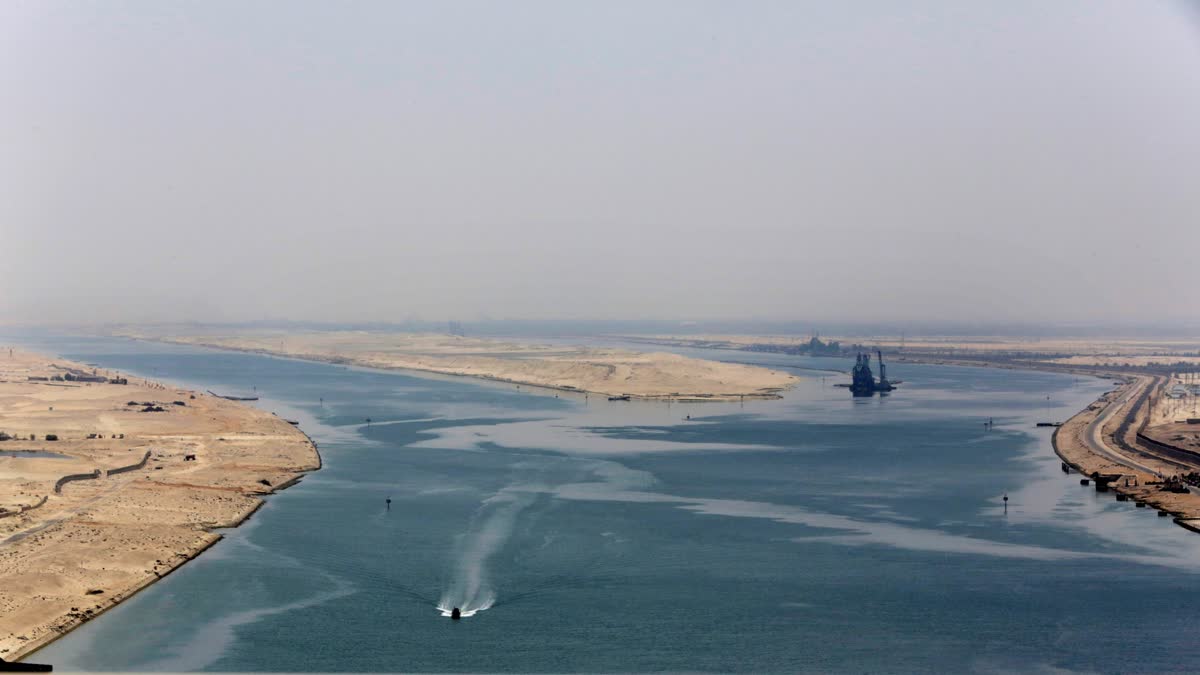The deepening of the Red Sea crisis has impacted India’s trade with Europe, North America, North Africa, and parts of the Middle East. While exports of basmati rice and marine products have been impacted the most, imports of sunflower oil from Russia and Ukraine, which is mostly used during the winter, have become costlier by Rs 6-Rs 7 per kg as the availability has dried up as consignments are not arriving on time and are delayed by 18 -20 days.
On the other hand, basmati rice prices have fallen by close to 10 percent in the domestic market as the consignments are taking longer time to reach the Middle East, the largest consumer of aromatic grain.
The Red Sea crisis has been spurred by the Iranian-backed Houthis, who have launched at least 35 attacks on cargo ships passing through the waterways leading up to Egypt’s Suez Canal, a vital route for energy and cargo coming from Asia and the Middle East onward to Europe.
Dr Ajay Sahai, director general and CEO of the Federation of Indian Export Organisations (FIEO) said “The Red Sea crisis seems to be a prolonged one now. The involvement of Iran in the Houthi attacks will further prolong the pain. Logistics has become a major concern now which impacts exports and imports.”
A Crisil Ratings report released on Thursday said that the impact of the ongoing crisis around the Red Sea in the Middle East is expected to vary depending on the industry and sector-specific and trade nuances.
On one hand, players operating in sectors such as agricultural commodities and marine foods could see a significant impact due to the perishable nature of their goods and/or lean margin profiles, which limit their ability to absorb the risks from rising freight costs.
On the other hand, players operating in sectors like textiles, chemicals, and capital goods may not be immediately impacted because of a better ability to pass on higher costs, or because of a weaker trade cycle. But a prolonged crisis over the next few quarters can make these sectors also vulnerable as working capital cycles would get stretched with orders put on hold.
Indian companies use the Red Sea route through the Suez Canal to trade with Europe, North America, north Africa, and part of the Middle East. These regions accounted for 50% of India’s exports worth Rs 18 lakh crore and 30% of imports worth Rs 17 lakh crore last fiscal. India’s overall merchandise trade (exports and imports combined) last fiscal was Rs 94 lakh crore, with 68% (in value terms) and 95% (in volume terms) shipped through sea.
Increasing attacks on ships sailing in the Red Sea region since November 2023 have persuaded shippers to consider the alternative, longer route past the Cape of Good Hope. This has not only stretched delivery time by 15-20 days but also increased the transit cost substantially because of incremental freight rates and insurance premiums. Reports suggest 400 cargo ships traverse through the southern Red Sea at any given time.
Till Monday, the US and British militaries along with their allies have struck more than 60 targets in 28 locations in response to the Houthi drone and missile attacks on commercial ships after Israel's counter to the deadliest October 7 Hamas attack.
Crisil said that marine foods (predominantly shrimp and prawn) could also see a significant impact as 80- 90% of the production is exported, more than half of it through the Red Sea. Their perishable nature and lean margins make exporters vulnerable to rising freight costs and competitive pressure from Latin American suppliers.
Pradeep Chowdhry, managing director of Hyderabad-based Gemini Edibles & Fats India said “Vessels containing sunflower oils are stuck at different ports due to the current crisis. There is no sunflower oil supply now in the Indian market. Branded players like us are buying from the traders, who still have stocks, at a higher price. This has resulted in prices moving up.”
Basmati rice (30-35% of production is shipped to these regions), exporters are feeling the pressure as rising freight costs has curbed exports and a part of their inventory is now being sold in the domestic market, leading to a moderation in realisations.
Vijay Setia, former president of All India Rice Exporters Association said “The situation is worrisome as prices of basmati rice are falling. Exporters will suffer a lot.”
Players in the capital goods sector (with exports and imports of over Rs 2 lakh crore each) could be impacted by a sustained disruption in trade routes due to delays in deliveries, which can lead to inventory build-up and the slowdown in order conversions for engineering, procurement, and construction companies.
Read More
- Matter of concern: India on situation in Red Sea
- Red Sea imbroglio hitting transportation cost: CEO of Indian shipping firm
- Red Sea crisis may push shipping cost by up to 60 pc, insurance premiums by 20 pc: GTRI
- US destroys three Houthi anti-ship missiles in Red Sea
- In response to Red Sea crisis, US designates Yemen's Houthis as 'global terrorist'



